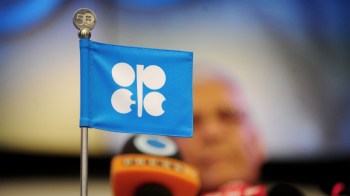Libya could offer more than oil
Share Now on:
Libya could offer more than oil
KAI RYSSDAL: Later this month, on the 29th to be exact, the US plans to remove Libya from its list of state sponsors of terrorism. The White House announced plans to restore relations back in May. But there’s still some last-minute business to attend to. The Senate wants President Bush to hold off on full diplomatic ties. Libya’s still half a billion dollars short on its payments to victims of the Lockerbie bombing 18 years ago. Commentator Reza Aslan says having Libya as an ally will be worth the wait.
REZA ASLAN: Libya sits upon the largest proven oil reserves in all of Africa. But Libya’s economy is almost completely dependent upon oil revenues. In fact, oil makes up some 95% of its exports. As with most oil-rich states, a little of this revenue trickles down to the lower levels of society.
That’s because countries that have lots of oil, but not much else, often lack the incentive to pursue social, political, or economic development. Thomas Friedman calls this “the first law of petro-politics.” The price of oil and the pace of freedom tend to move in opposite directions.
Oil rich nations like Iran, Saudi Arabia, Nigeria, and Venezuela use their cash windfalls to deflect any pressure to change their authoritarian policies. After all, a country flush with oil doesn’t need to burden its citizens with taxation. And if a government doesn’t have to tax its citizens, it doesn’t have to listen to them either.
Libya should be commended for trying to reform its image as a pariah state. It has struggled to cut government subsidies and promote privatization. Now the international community must help Libya expand and diversify its economic base.
The Bush Administration took a first step by restoring ties with a former enemy. But the last thing the US needs right now is another oil-rich dictator in the Middle East.
American and European companies are lining up to develop Libya’s oil industry. But Libya needs investments in all areas, particularly its tourism and agricultural industries. Such assistance will create a stronger, more diversified economy. And that could lead to a freer, more stable government.
Libya could be so much more than just another resource for our insatiable thirst for oil. It could become an enduring ally in a region where the US has few friends.
RYSSDAL: Reza Aslan is the author of the book, “No God but God.”
There’s a lot happening in the world. Through it all, Marketplace is here for you.
You rely on Marketplace to break down the world’s events and tell you how it affects you in a fact-based, approachable way. We rely on your financial support to keep making that possible.
Your donation today powers the independent journalism that you rely on. For just $5/month, you can help sustain Marketplace so we can keep reporting on the things that matter to you.


















